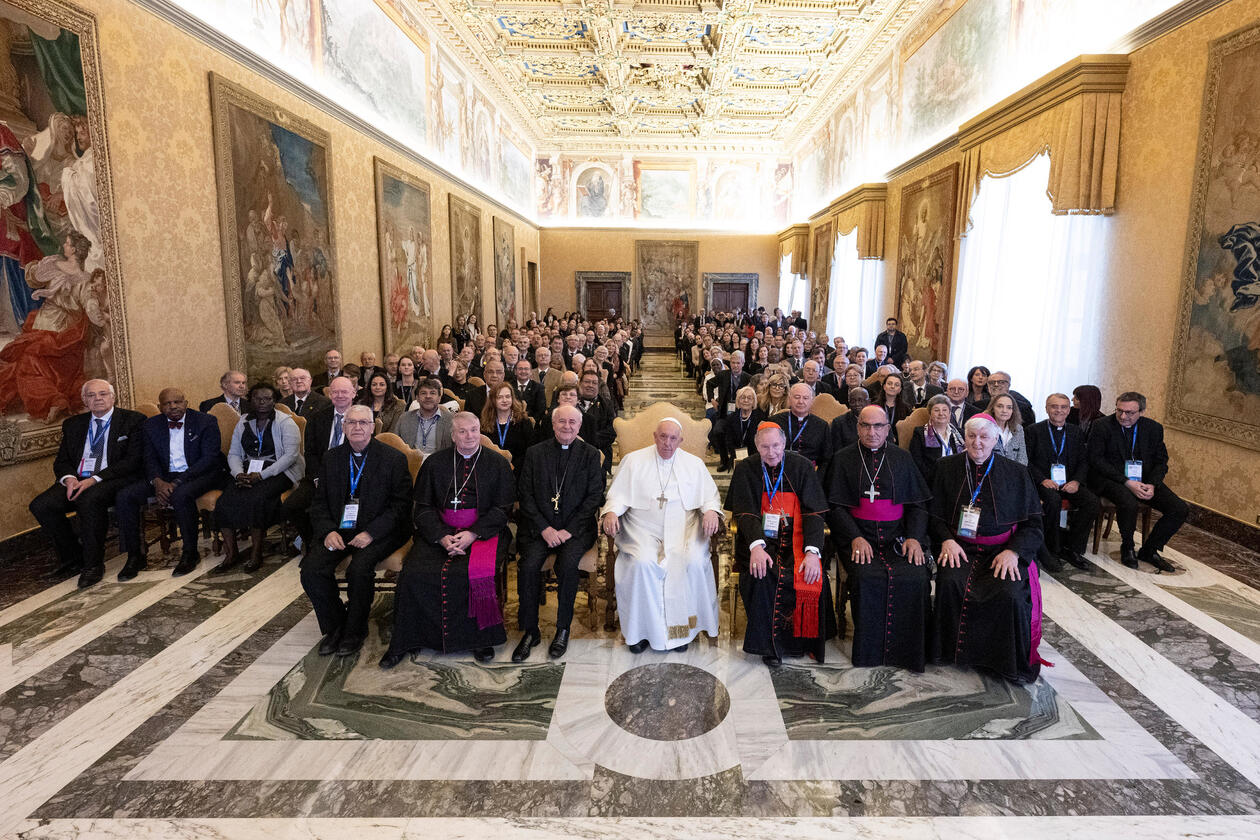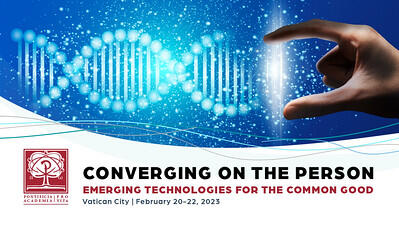Building a science for human flourishment
In his opening lecture of the 2023 General Assembly at the Vatican City, UiB professor Roger Strand explored the role of ethics in converging technologies.

Main content
At this year’s General Assembly of the Pontifical Academy for Life, Strand was invited to give the opening lecture of the public workshop "Converging on the person. Emerging technologies for the common good."
Ethical and social aspects of emerging technology
The theme of the workshop, which Strand in his press statement called "timely and to the point," speaks directly to one of his main areas of research at the Centre for the Study of the Sciences and the Humanities (SVT): the ethical and social aspects of emerging science and technology. Strand is also a Principal Investigator at the Centre for Cancer Biomarkers, one of UiB’s Centres of Excellence, where he is part of the research group on ELSA (Ethical, Legal and Social Aspects of new technology) together with SVT colleague Anne Blanchard.
Science and technology are co-produced with society
About his lecture, Ethical issues of converging technologies, Strand says the following:
"My main message overall is that converging technologies and the ethical issues that they raise are linked to structural features of contemporary modern societies and should be addressed as such. Neither science nor technology emerges in a vacuum but is co-produced with the society in which it takes place."
Full flourishing of human beings
The assembly’s focus on converging and emerging technologies was requested by Pope Francis in Humana Communitias in 2019; a letter to the Pontifical Academy for Life for the 25th anniversary of its establishment in which he emphasized the importance of putting the "full flourishing of human beings" front and centre:
"Another area calling for study is that of the new technologies described as "emergent" and "convergent." (…) There is a pressing need (…) to understand these epochal changes and new frontiers in order to determine how to place them at the service of the human person, while respecting and promoting the intrinsic dignity of all."
Breaking with the one-dimensional technocratic paradigm
In his press statement, Strand also referred to the Pope’s 2015 encyclical letter Laudato Si’, which became widely reported as Pope Francis’s statement on climate change:
"The ethical issues of converging technologies are entangled with the political economy of technoscience, with political agendas of innovation and economic growth, and with market forces and ideologies and cultures of materialism and consumerism. They are entangled with what the Encyclical Laudato Si’ rightly called the technocratic paradigm."
Strand further expanded on what role researchers can play in breaking with what the Pope calls an "undifferentiated and one-dimensional paradigm":
"Within academia, we can improve our ways to describe what so far escapes the technocratic paradigm. Medicine and health science can become sensitized to a wider range of meaning, including the spiritual dimension. We could build a science for human flourishment."
In the conclusion of his lecture, Strand gave the following advice on what we can do to achieve this:
- Encourage responsible research and innovation.
- Count what currently does not count, building a science for human flourishment.
- Listen better to peripheral voices.
- Continue to ask: "Can this sociotechnical trajectory help us remember how our lives truly can be, and support our strength to live them?
See video of the full opening session of the 2023 Assembly workshop. Strand's lecture starts at 24:33.


